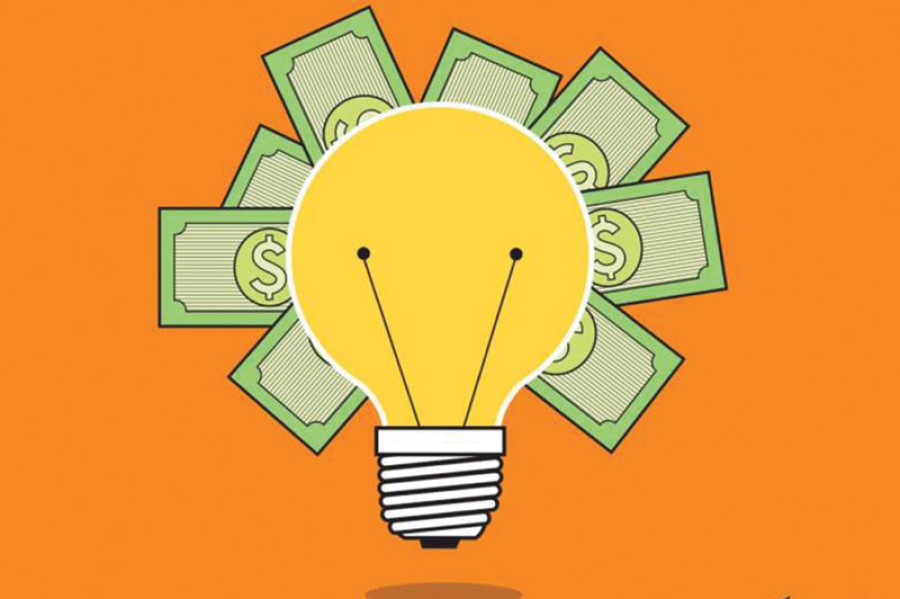Opinion
Fumbling in the dark
The Alternative Energy Promotion Centre (AEPC), Nepal’s apex government body for the promotion of renewable energy, turned 20 this month.
Bibek Raj Kandel
The Alternative Energy Promotion Centre (AEPC), Nepal’s apex government body for the promotion of renewable energy, turned 20 this month. How the AEPC managed to provide improved cooking and lighting solutions 3.6 million households in a span of two decades is something that should earn it praise and applause. However, unbeknownst to many, the institution is also riddled with rifts and complications. Lately, there has been a serious split with a few of its donors. This break-up is not devoid of drama, lies, distrust and conspiracies. If the issue is not resolved quickly, severe damage will be caused to this new industry in Nepal that was instituted by decades of service and hard work of many professionals, renewable energy advocates, private sector organisations, civil society organisations, multiple well-wishers and development partners.
Dark times
In June last year, the Ministry of Finance received an angry letter from the Embassy of Denmark saying that it was freezing its funding to the National Rural and Renewable Energy Programme (NRREP)—a $170-million renewable energy undertaking—citing lack of progress on the AEPC’s part to do something about the formation of cartels by solar companies. A number of private firms had formed a cartel and were forcing consumers to buy high-priced large systems. This problem cannot be fixed by enforcing compliance control or imposing penalties. It needs systemic intervention. The AEPC and the donors should have reflected upon their own modus operandi and fixed it first. However, the easiest option the donors chose was to freeze their funding and wait to see how the AEPC would deal with the problem.
This action that brought the whole sector to a screeching halt has left many baffled. While I don’t question the donors’ intention to clear the mess before it spread further, I am equally of the opinion that it was one of their most irresponsible and unethical decisions to distance themselves from a problem that they partly helped create. It would be wrong to place all the blame on the AEPC. As the donors started imposing a series of audits and compliance orders, things became more complex as it started unearthing other lapses one after another. This created a huge burden on the weak AEPC bureaucracy which is already hindered by political meddling and internal rifts.
All the field work and installations came to a complete halt as the AEPC attempted to respond to the donors’ requirements. The AEPC couldn’t even spend the resources provided by the state and lenient donors. And something else not seen in the renewable energy sector ever before started unfolding. Some donors took micro meddling too far under the veil of advisor assistance and began interfering in the state’s affairs in the name of making their aid more effective. This led to a new division of opinion among the donors themselves. The harsh truth is that a whole year was spent on negotiations with not a single technology installed, making it the darkest year in the history of renewables in Nepal.
Dismal ethics
How ethical is it for the donors to take
credit for the successes of the past and blame the AEPC for the mess for which they are partly responsible? What is equally strange is the profound lack of empathy as shown by their blocking of all services when the whole country had been traumatised by the killer quake and the Indian blockade, and all that the people wanted was basic energy solutions.
This issue of unethical dealing in solar installations not only became a dominant issue in the sector, it later also served as a major reference for the revision of Subsidy Policy 2016. It is probably one of the costliest policy revision exercises ever held in Nepal considering the fact that it was prepared at the cost of blocking all renewable
energy services for an entire year. However, the fate of this policy is still unknown as the debate does not look like ending
anytime soon. This is not a past issue that I am talking about. Compliance negotiations are still going on between the AEPC, donors and private sector with no realisation of what they are getting themselves into. No surprise that the AEPC today outsources more accountants and auditors than technicians and engineers.
The fact is that there seems to be serious problems at both ends of the spectrum. The broader problem is that the donors have been constantly denying their role in bringing the institution to this mess and want the AEPC alone to take the responsibility. Donors, I hope you are listening. We know that the Nepali bureaucracy has serious lapses, corruption is flourishing and unethical dealings by private companies are rampant. And, like you, we too do not want our taxpayer money to be misused by greedy bureaucrats or pocketed by any unethical private firm. But, in the name of controls and compliances, your requirements should not become another burden on the weak bureaucracy instead of helping it to reform.
We agree that there seems to be a gross problem in the AEPC’s ability to handle these new challenges and the complexity of the issue of subsidy misappropriation, but in the name of good governance and aid effectiveness, donor micro meddling and high-handedness without accepting their own role in creating the mess is equally dangerous. It does not earn them a good
reputation either. This current myopia of believing that short-term compliance orders can solve the problem without understanding the systemic lapses in the design and structure of the NRREP will merely be a zero-sum blame game. This toxic conflict which threatens to paralyse the growth of the entire sector should not be prolonged. Donors, I hope you are listening.
- Kandel is an energy policy expert




 23.51°C Kathmandu
23.51°C Kathmandu










